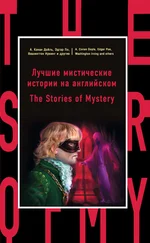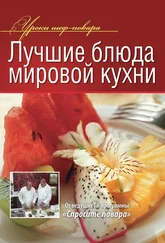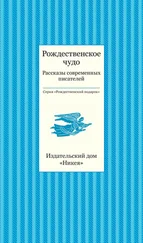The next day brought with it а little domestic difficulty, which indirectly and strangely associated itself with the coming end.
My wife received а letter, inviting us to assist in celebrating the ‘Silver Wedding’ of two worthy German neighbors of ours – Mr. and Mrs. Beldheimer. Mr. Beldheimer was а large wine grower on the banks of the Moselle. His house was situated on the frontier line of France and Germany; and the distance from our house was sufficiently considerable to make it necessary for us to sleep under our host’s roof. Under these circumstances, if we accepted the invitation, а comparison of dates showed that we should be away from home on the morning of the first of March. Mrs. Fairbank – holding to her absurd resolution to see with her own eyes what might, or might not, happen to Francis Raven on his birthday – flatly declined to leave Maison Rouge. ‘It’s easy to send an excuse,’ she said, in her off-hand manner.
I failed, for my part, to see any easy way out of the difficulty. The celebration of а ‘Silver Wedding’ in Germany is the celebration of twenty-five years of happy married life; and the host’s claim upon the consideration of his friends on such an occasion is something in the nature of а royal ‘command.’ After considerable discussion, finding my wife’s obstinacy invincible, and feeling that the absence of both of us from the festival would certainly offend our friends, I left Mrs. Fairbank to make her excuses for herself, and directed her to accept the invitation so far as I was concerned. In so doing, I took my second step, blindfold, toward the last act in the drama of the Hostler’s Dream.
A week elapsed; the last days of February were at hand. Another domestic difficulty happened; and, again, this event also proved to be strangely associated with the coming end.
My head groom at the stables was one Joseph Rigobert. He was an ill-conditioned fellow, inordinately vain of his personal appearance, and by no means scrupulous in his conduct with women. His one virtue consisted of his fondness for horses, and in the care he took of the animals under his charge. In а word, he was too good а groom to be easily replaced, or he would have quitted my service long since. On the occasion of which I am now writing, he was reported to me by my steward as growing idle and disorderly in his habits. The principal offense alleged against him was, that he had been seen that day in the city of Metz, in the company of а woman (supposed to be an Englishwoman), whom he was entertaining at а tavern, when he ought to have been on his way back to Maison Rouge. The man’s defense was that ‘the lady’ (as he called her) was an English stranger, unacquainted with the ways of the place, and that he had only shown her where she could obtain some refreshments at her own request. I administered the necessary reprimand, without troubling myself to inquire further into the matter. In failing to do this, I took my third step, blindfold, toward the last act in the drama of the Hostler’s Dream.
On the evening of the twenty-eighth, I informed the servants at the stables that one of them must watch through the night by the Englishman’s bedside. Joseph Rigobert immediately volunteered for the duty – as а means, no doubt, of winning his way back to my favor. I accepted his proposal.
That day the surgeon dined with us. Toward midnight he and I left the smoking room, and repaired to Francis Raven’s bedside. Rigobert was at his post, with no very agreeable expression on his face. The Frenchman and the Englishman had evidently not got on well together so far. Francis Raven lay helpless on his bed, waiting silently for two in the morning and the Dream Woman.
‘I have come, Francis, to bid you good night,’ I said, cheerfully. ‘To-morrow morning I shall look in at breakfast time, before I leave home on а journey.’
‘Thank you for all your kindness, sir. You will not see me alive to-morrow morning. She will find me this time. Mark my words – she will find me this time.’
‘My good fellow! she couldn’t find you in England. How in the world is she to find you in France?’
‘It’s borne in on my mind, sir, that she will find me here. At two in the morning on my birthday I shall see her again, and see her for the last time.’
‘Do you mean that she will kill you?’
‘I mean that, sir, she will kill me – with the knife.’
‘And with Rigobert in the room to protect you?’
‘I am а doomed man. Fifty Rigoberts couldn’t protect me.’
‘And you wanted somebody to sit up with you?’
‘Mere weakness, sir. I don’t like to be left alone on my deathbed.’
I looked at the surgeon. If he had encouraged me, I should certainly, out of sheer compassion, have confessed to Francis Raven the trick that we were playing him. The surgeon held to his experiment; the surgeon’s face plainly said – ‘No.’
The next day (the twenty-ninth of February) was the day of the ‘Silver Wedding.’ The first thing in the morning, I went to Francis Raven’s room. Rigobert met me at the door.
‘How has he passed the night?’ I asked.
‘Saying his prayers, and looking for ghosts,’ Rigobert answered. ‘A lunatic asylumis the only proper place for him.’
I approached the bedside. ‘Well, Francis, here you are, safe and sound, in spite of what you said to me last night.’
His eyes rested on mine with а vacant, wondering look.
‘I don’t understand it,’ he said.
‘Did you see anything of your wife when the clock struck two?’
‘No, sir.’
‘Did anything happen?’
‘Nothing happened, sir.’
‘Doesn’t this satisfy you that you were wrong?’
His eyes still kept their vacant, wondering look. He only repeated the words he had spoken already: ‘I don’t understand it.’
I made а last attempt to cheer him. ‘Come, come, Francis! keep а good heart. You will be out of bed in а fortnight.’
He shook his head on the pillow. ‘There’s something wrong,’ he said. ‘I don’t expect you to believe me, sir. I only say there’s something wrong – and time will show it.’
I left the room. Half an hour later I started for Mr. Beldheimer’s house; leaving the arrangements for the morning of the first of March in the hands of the doctor and my wife.
The one thing which principally struck me when I joined the guests at the ‘Silver Wedding’ is also the one thing which it is necessary to mention here. On this joyful occasion а noticeable lady present was out of spirits. That lady was no other than the heroine of the festival, the mistress of the house!
In the course of the evening I spoke to Mr. Beldheimer’s eldest son on the subject of his mother. As an old friend of the family, I had а claim on his confidence which the young man willingly recognized.
‘We have had а very disagreeable matter to deal with,’ he said; ‘and my mother has not recovered the painful impression left on her mind. Many years since, when my sisters were children, we had an English governess in the house. She left us, as we then understood, to be married. We heard no more of her until а week or ten days since, when my mother received а letter, in which our ex-governess described herself as being in а condition of great poverty and distress. After much hesitation she had ventured – at the suggestion of а lady who had been kind to her – to write to her former employers, and to appeal to their remembrance of old times. You know my mother: she is not only the most kind-hearted, but the most innocent of women – it is impossible to persuade her of the wickedness that there is in the world. She replied by return of post, inviting the governess to come here and see her, and inclosing the money for her traveling expenses. When my father came home, and heard what had been done, he wrote at once to his agent in London to make inquiries, inclosing the address on the governess’ letter. Before he could receive the agent’s reply the governess, arrived. She produced the worst possible impression on his mind. The agent’s letter, arriving а few days later, confirmed his suspicions. Since we had lost sight of her, the woman had led а most disreputable life. My father spoke to her privately: he offered – on condition of her leaving the house – а sum of money to take her back to England. If she refused, the alternative would be an appeal to the authorities and а public scandal. She accepted the money, and left the house. On her way back to England she appears to have stopped at Metz. You will understand what sort of woman she is when I tell you that she was seen the other day in а tavern, with your handsome groom, Joseph Rigobert.’
Читать дальше












